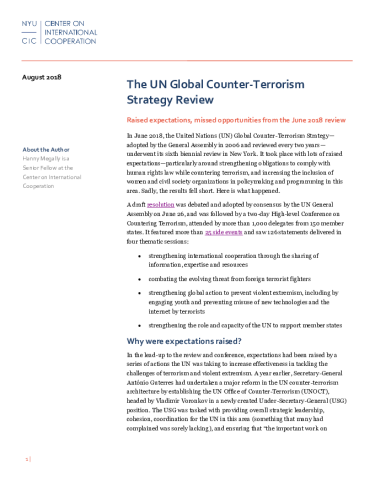Raised expectations, missed opportunities from the June 2018 review
In June 2018, the United Nations (UN) Global Counter-Terrorism Strategy—adopted by the General Assembly in 2006 and reviewed every two years—underwent its sixth biennial review in New York. It took place with lots of raised expectations—particularly around strengthening obligations to comply with human rights law while countering terrorism, and increasing the inclusion of women and civil society organizations in policymaking and programming in this area. Sadly, the results fell short. Here is what happened.
A draft resolution was debated and adopted by consensus by the UN General Assembly on June 26, and was followed by a two-day High-level Conference on Countering Terrorism, attended by more than 1,000 delegates from 150 member states. It featured more than 25 side events and saw 126 statements delivered in four thematic sessions:
- strengthening international cooperation through the sharing of information, expertise and resources
- combating the evolving threat from foreign terrorist fighters
- strengthening global action to prevent violent extremism, including by engaging youth and preventing misuse of new technologies and the internet by terrorists
- strengthening the role and capacity of the UN to support member states
